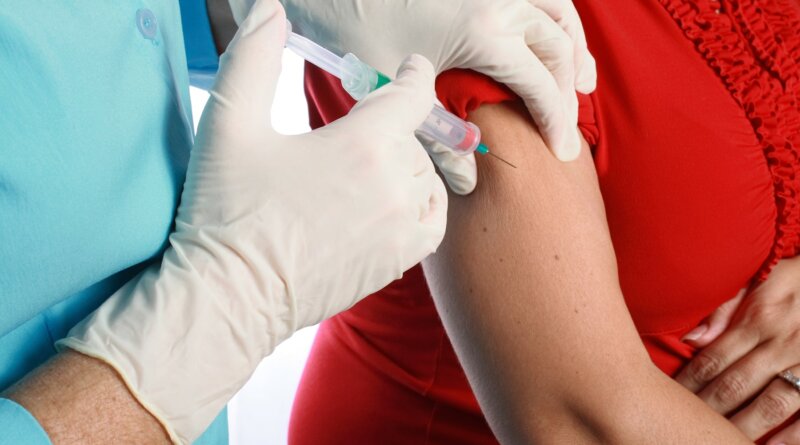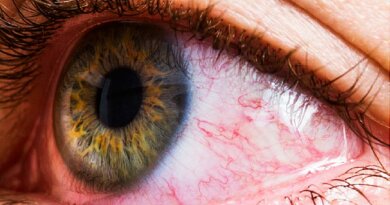Nearly 9 Million Pfizer Shots in Teens, Serious Side Effects Rare
[ad_1]
HealthDay Reporter
MONDAY, Aug. 2, 2021 (HealthDay News) — U.S. health officials have some reassuring news about the safety of the COVID-19 vaccine in young people: Among millions of U.S. teens who’ve received Pfizer’s shots, serious side effects have been rare.
As of July 16, close to 9 million teens, aged 12 to 17, had received the Pfizer-BioNTech vaccine — the only one okayed for that age group. Among roughly 9,240 reported side effects, 91% were minor, such as soreness near the vaccination site.
But 9% were serious, with 4% developing a heart problem known as myocarditis, the U.S. Centers for Disease Control and Prevention reported Friday.
“Local and systemic reactions are common among adolescents following Pfizer-BioNTech vaccine, especially after the second dose; however, serious adverse events after COVID-19 vaccination are rare,” said the report’s lead author, Anne Hause, a CDC epidemiologist.
Myocarditis was among the most common severe adverse events reported, she said. This is an inflammation of the heart muscle that can affect the heart’s electrical system, reducing its pumping ability and causing rapid or abnormal rhythms.
Myocarditis is usually caused by a viral infection, such as COVID-19, but can also be a reaction to a drug. Signs and symptoms include chest pain, fatigue, shortness of breath and arrhythmias (abnormal heart rhythm).
While this association may sound alarming, CDC experts continue to stress the benefits of vaccination for all people aged 12 and older. The vaccine has not yet been approved for younger kids.
Getting vaccinated is better than getting COVID-19, Hause said.
“The benefits of vaccination in preventing COVID-19 and its complications continue to outweigh the potential risks of rare adverse events reported after vaccination,” she said.
Last week, a study published in the preprint server medRxiv found that teens were at significantly greater risk of developing heart inflammation after getting COVID-19 itself than from the vaccine. Researchers looked at heart inflammation rates in about 14,000 teens diagnosed with COVID-19 and in a similar number of vaccinated teens who reported side effects. They found that the risk of heart inflammation was 21 times higher among girls with COVID and about six times higher among boys with COVID compared with the vaccination group.
“Vaccinating 12- to 17-year-olds remains the safer choice for this age group and will reduce school interruptions and transmission to others,” said Mendel Singer, vice chair for education at Case Western Reserve University School of Medicine in Cleveland and co-author of the medRxiv study.
Dr. Paul Offit, director of the Vaccine Education Center at the Children’s Hospital of Philadelphia, agreed that side effects from the vaccine are preferable to the devastating effects of COVID-19.
“You need to put it in perspective. First of all, it appears roughly only one in 20,000 recipients who are in the highest risk group will develop myocarditis after two shots,” he said.
“Myocarditis never sounds good. You can say mild myocarditis all you want, but it’s also going to scare people, because the inflammation of the heart muscle is always going to be seen as worrisome. But it does appear to be self-limiting, short-lived, not fatal and not associated with coronary artery abnormalities,” Offit said.
A recent study among 1,600 college athletes who had COVID-19 found that roughly one in 43 had myocarditis, he said. “So you have basically one in 20,000 phenomena at its peak for the vaccine and a one in 43 phenomena with the disease.”
If symptoms of myocarditis develop, parents should take their child to the doctor, and they may be referred to the hospital for observation, Offit said.
To parents who are concerned about having their child vaccinated, Offit said, “Just know that the disease is common, that this (Delta) variant especially is highly contagious.”
He added that some believe that over the next few years, you’ll have two choices — to be vaccinated or to be naturally infected. “Vaccination is the safer choice, because natural infection also causes myocarditis at a much higher rate,” he said.
The disease is worse than the vaccine, Offit stressed. “That’s always true,” he said.
The report was published July 30 in the CDC’s Morbidity and Mortality Weekly Report.
More information
For more on COVID-19 vaccine side effects, head to the U.S. Centers for Disease Control and Prevention.
SOURCES: Anne Hause, PhD, epidemiologist, U.S. Centers for Disease Control and Prevention; Mendel Singer, PhD, vice chair for education, Case Western Reserve University School of Medicine, Cleveland; Paul Offit, MD, director, Vaccine Education Center, Children’s Hospital of Philadelphia; Morbidity and Mortality Weekly Report, July 30, 2021
[ad_2]
Source link





Эксклюзивные советы для создания образа, который запомнится.
https://she.kr.ua
Medication prescribing information. Drug Class.
cost of generic acyclovir for sale
Some news about drug. Read here.
[url=https://gabriel-jesus-cz.biz]https://gabriel-jesus-cz.biz[/url]
last news about gabriel jesus
http://www.gabriel-jesus-cz.biz
Запойное пьянство характеризуется продолжительным и интенсивным потреблением алкоголя, что приводит к серьезным физическим и психологическим последствиям. Часто пациенты сталкиваются с различными заболеваниями, такими как цирроз печени, панкреатит, алкогольный делирий и другие. Алкогольное опьянение не только ухудшает качество жизни, но также может угрожать жизни пациента. В условиях стационара лечение может быть более эффективным, однако многие люди предпочитают проходить данную процедуру на дому, чтобы избежать стигматизации и сохранить чувство приватности.
Получить дополнительные сведения – [url=https://vyvod-iz-zapoya-20.ru/vivod-iz-zapoya-na-domu-v-ekaterinburge/]narkologiya vyvod iz zapoya na domu ekaterinburg[/url]